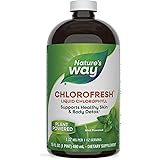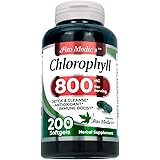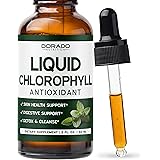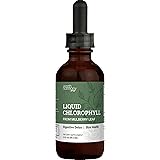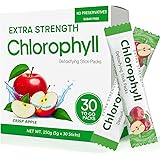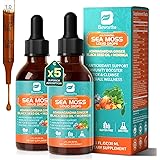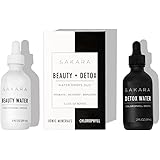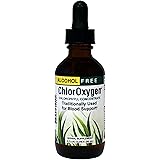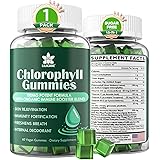As the accompanying video clearly articulates, attempting to undertake an alcohol detox at home without professional medical supervision is not merely ill-advised, it is profoundly dangerous. The seemingly straightforward act of ceasing alcohol consumption can initiate a cascade of severe physiological reactions, placing individuals at significant risk. Understanding the intricate biological processes at play during alcohol withdrawal is paramount for anyone considering this critical step towards recovery.
The Perilous Physiology of Alcohol Withdrawal
Alcohol functions primarily as a Central Nervous System (CNS) depressant, slowing down brain activity and neurotransmitter functions. Chronic alcohol consumption forces the brain to adapt by increasing its excitatory neurotransmitter activity, essentially attempting to counterbalance the depressive effects of alcohol. When alcohol is abruptly removed from the system, this compensatory overactivity remains unchecked, leading to a state of neuronal hyperexcitability; this is the fundamental mechanism driving alcohol withdrawal symptoms.
This neurochemical imbalance is comparable to a stretched rubber band that snaps back with unexpected force once released. The brain, accustomed to the constant presence of alcohol, struggles to regulate itself once the depressant effect is absent. Consequently, the body’s autonomic nervous system goes into overdrive, manifesting in a wide range of uncomfortable and potentially life-threatening symptoms that require immediate medical attention. Individuals might drastically underestimate the severity of this intricate physiological response, leading to hazardous self-management.
Understanding the Timeline: From Early Tremors to Life-Threatening Crises
The progression of alcohol withdrawal symptoms is typically dynamic and can accelerate with alarming speed, underscoring the necessity of continuous medical oversight. Initial symptoms, which may appear as early as six hours after the last drink, frequently include nausea, persistent headaches, involuntary tremors (often referred to as “the shakes”), and a marked loss of appetite. However, these early manifestations are merely the precursors to potentially far more severe complications that can emerge shortly thereafter.
The most critical window for severe symptoms spans approximately 24 to 72 hours post-cessation, although the exact timing can vary significantly among individuals. During this period, the brain’s hyperexcitability can escalate to dangerous levels, presenting a formidable challenge to an unsupervised individual. In contrast to the initial discomfort, symptoms in this phase can involve dramatic increases in heart rate and blood pressure, profound confusion, terrifying hallucinations, and even potentially fatal seizures. This rapid deterioration highlights why a professional setting equipped to handle such emergencies is absolutely non-negotiable for safe alcohol detox at home.
The Spectrum of Severe Symptoms: Beyond Discomfort
When discussing the more advanced stages of alcohol withdrawal, medical professionals frequently highlight conditions like Delirium Tremens (DTs), a severe and potentially deadly form of withdrawal. Characterized by profound confusion, rapid fluctuations in mental status, auditory or visual hallucinations, and autonomic hyperactivity, DTs can be a truly harrowing experience. Imagine navigating a vivid, terrifying dreamscape while fully awake and grappling with profound physiological instability; this provides some insight into the disorienting reality of DTs.
Furthermore, alcohol withdrawal seizures represent another grave risk, often striking without warning and carrying the potential for serious injury or even death. These seizures, similar to epileptic fits, are a direct result of the brain’s overwhelming excitability. The combination of cardiovascular stress, severe neurological disruption, and profound psychological distress makes unsupervised withdrawal an incredibly precarious endeavor. The body, rather than gently adjusting, enters a state of crisis when detoxing from alcohol at home.
Factors Amplifying Withdrawal Severity
Several individual characteristics significantly influence the intensity and trajectory of alcohol withdrawal, demonstrating why a standardized approach to self-detox is impossible. A person’s age, for instance, plays a crucial role, with older individuals often experiencing more severe symptoms due to accumulated health issues and altered physiological responses. Similarly, the duration for which an individual has been drinking heavily directly correlates with the severity of withdrawal; chronic, prolonged alcohol use leads to more profound neurological adaptations.
Moreover, the sheer quantity of alcohol consumed daily is a significant predictor of withdrawal intensity. A person who consumes vast amounts of alcohol daily will likely face a much more challenging and dangerous detox than someone with moderate dependence. Previous withdrawal episodes can also contribute to a phenomenon known as “kindling,” where each subsequent withdrawal experience becomes progressively more severe, even with less alcohol intake. This kindling effect makes repeated attempts at self-detox increasingly hazardous, transforming each attempt into a potentially more perilous situation.
The Indispensable Role of Medical Management in Safe Detox
Given the inherent dangers, proper medical management is not merely beneficial; it is absolutely essential for a safe and effective alcohol detox. Medications, most notably benzodiazepines such as diazepam or lorazepam, are central to this process. These pharmacological agents work to calm the overactive nervous system, effectively acting as a chemical “brake” to counteract the brain’s hyperexcitability. They mimic some of alcohol’s CNS depressant effects, allowing for a gradual, controlled taper that mitigates the most dangerous symptoms.
Under professional supervision, medical teams can precisely titrate medication dosages based on an individual’s evolving symptomology, ensuring both comfort and safety. This meticulous approach prevents the uncontrolled escalation of symptoms that characterizes unsupervised withdrawal. Unlike the unpredictable journey of detoxing from alcohol at home, a medically supervised detox provides a predictable and safer pathway, guiding the body back to a stable state while minimizing severe risks.
Beyond Medication: Comprehensive Support in a Structured Environment
Medical detox offers far more than just prescription medications; it provides a holistic and supportive environment critical for successful initial recovery. This includes continuous monitoring of vital signs, access to emergency medical care should complications arise, and psychological support to manage the intense anxiety and cravings that accompany withdrawal. A professional setting eliminates the temptations and triggers often present in home environments, which can sabotage even the most determined attempts at sobriety. In contrast to the isolation and fear often experienced during self-detoxification, a medical facility offers a secure and reassuring atmosphere, promoting better outcomes.
Furthermore, medical detox programs frequently serve as a crucial gateway to ongoing addiction treatment, connecting individuals with therapy, counseling, and support groups. While overcoming the initial physical dependence is vital, addressing the underlying psychological and behavioral aspects of alcohol dependence is equally important for sustained sobriety. Attempting an alcohol detox at home removes these essential layers of support, leaving individuals vulnerable not only to physical harm but also to rapid relapse due to unaddressed triggers and cravings.
Therefore, if you or a loved one are contemplating reducing alcohol intake or striving for sobriety, the unequivocal recommendation is to seek professional medical assistance. Engaging with experts ensures that the detox process is managed safely, compassionately, and with the highest regard for your health and well-being. Please remember that attempting any form of alcohol detox at home without expert guidance is a serious gamble with your health and, potentially, your life.



